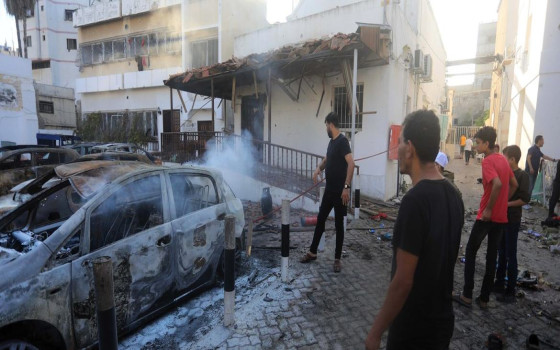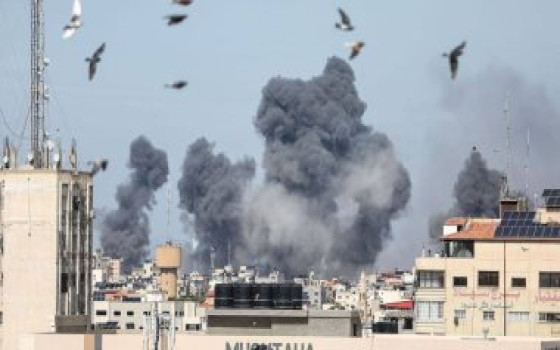Every 10 minutes, a child dies in Gaza. The World Health Organization before the Security Council: The situation is beyond description

- Europe and Arabs
- Saturday , 11 November 2023 15:40 PM GMT
New York - Gaza: Europe and the Arabs
Before the UN Security Council, the Director-General of the World Health Organization called for ensuring unhindered access to aid to civilians in Gaza, the release of hostages, and a humanitarian ceasefire. The Council also heard from the Director General of the Palestinian Red Crescent Society, who called on him to implement an immediate and effective ceasefire.
This came in a session held by the UN Security Council on the situation in the Middle East, during which it focused on the deteriorating health conditions in the Gaza Strip. According to what was stated in the daily news bulletin of the United Nations
At the beginning of the session, and at the request of the United Arab Emirates, the Chinese Ambassador and the President of the UN Security Council called for a minute of silence to mourn the lives of Israeli and foreign civilians who died on October 7 in Israel, and all Palestinian civilians who died in Gaza and the West Bank. United Nations employees and journalists who were killed in the Gaza Strip.
The first speaker was WHO Director-General Dr. Tedros Adhanom Ghebreyesus, who began his speech by emphasizing his understanding of the anger, sadness and fear of the Israeli people after the “horrific, barbaric and unprovoked attacks by Hamas and other armed groups against Israeli civilians on October 7.”
He said that killing 1,400 people and wounding 7,000 others was unfathomable, and pointed to the long-term psychological consequences for survivors and families.
He expressed concern about the health and well-being of Israeli hostages in Gaza, many of whom are elderly, children and those with urgent medical needs. He indicated that he would meet some of the victims' families next week in Geneva - the organization's headquarters - and said that he had already met some of them two weeks ago.
The Director-General of the World Health Organization said that he also understands the feelings of anger, sadness and fear of the people of Gaza, who have already suffered from 16 years of siege and are now facing devastation to their families, homes, communities and lives.
He stated that the situation on the ground is impossible to describe. He said that more than 10,800 people had been killed in Gaza, 70% of whom were women and children - noting that a child was killed every 10 minutes in Gaza on average.
He said that the World Health Organization has documented - since October 7 - more than 250 attacks on health care in Gaza and the West Bank, and 25 attacks on health care in Israel. He pointed out that more than 100 United Nations employees were killed in Gaza.
He said: "As we speak, there are reports of gunfire outside Al-Shifa and Al-Rantisi hospitals."
He reported that half of Gaza's hospitals and two-thirds of its primary health care centers are out of service, and even other facilities are operating beyond their maximum capacity. He said that the health sector in Gaza has collapsed, but it is still providing some life-saving care.
He added that the best way to support health workers and those who serve them is to provide the tools they need to provide care, such as medicine, medical equipment, and fuel for hospital generators.
He said that field hospitals and emergency medical teams can complement and support the work of hospitals and medical workers in Gaza, but they cannot replace them.
The UN official called for unhindered access of aid to civilians in Gaza. He called on Hamas to release the hostages. He called on Israel to restore electricity, water and fuel supplies to the Strip. He called on both sides to comply with their obligations under international humanitarian law and ceasefire to prevent further civilian casualties and destruction of Gaza's hospitals and medical facilities.














No Comments Found